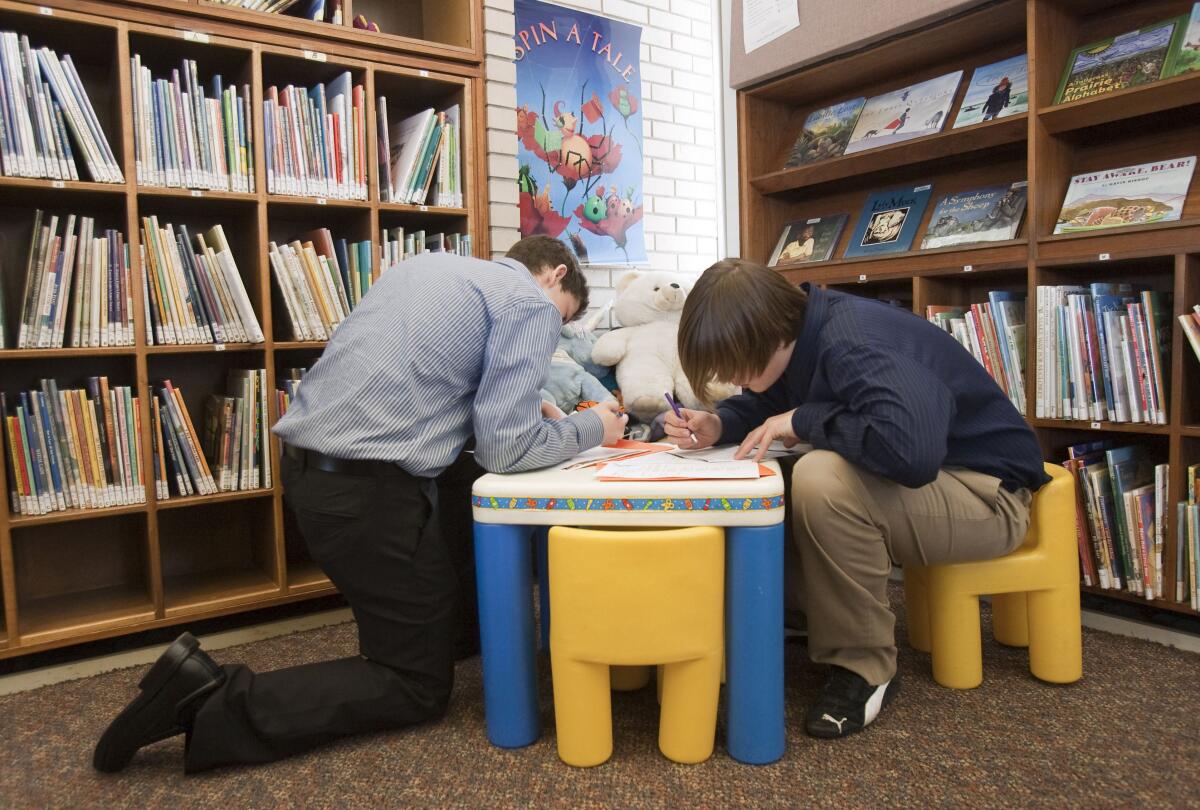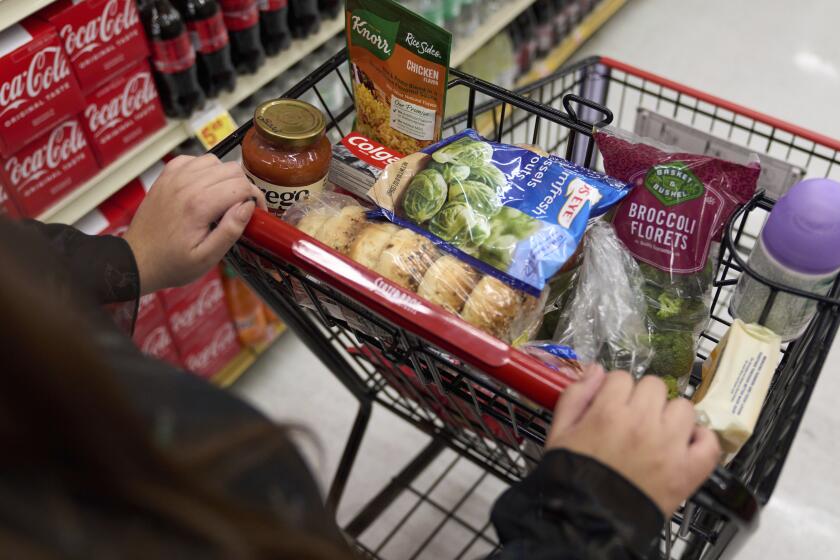Column: Rolling back child-labor laws? Has the GOP never read Dickens?

High school freshman girls should not double as cocktail waitresses at night.
That’s not a sentence I thought needed to be said, but here we are in 2023, and there are conservative lawmakers in Wisconsin and elsewhere who believe it’s a good idea for 14-year-olds to serve alcohol. As more than 10 states have made efforts to roll back child labor laws, that’s just one of the disturbing occupations floated as appropriate work for children.
Iowa enacted a law last week allowing more kids to work more dangerous jobs. In Arkansas, a 14-year-old would no longer need to show an employer proof of parental approval. In Ohio, a 14-year-old can work until 9 p.m. during the school year.
Trying to make up for the labor shortage by hiring teens to work long hours under limited protections could shift those young workers’ energy from school, making it more likely they will drop out.
Now the arguments against this movement are painfully obvious, but the so-called case for child labor requires unpacking.
Part of the rationale for relaxing the laws grows out of the worker shortage that employers have been experiencing for a few years now. But conservatives have been targeting child labor laws for decades. In fact, President Reagan not only pushed to expand the hours and types of work for children as young as 14, but also wanted to let employers pay teens less than minimum wage as a way to address teen joblessness in the “inner city.”
In hindsight that sounds pretty racist. I’m sure it sounded racist then too.
Which brings me to the other aspect of this child labor conversation: the assumption that poverty is more about work ethic than it is about the economic policies that have led to a shrinking middle class.
President Biden and Speaker Kevin McCarthy agreed to impose new restrictions on Supplemental Nutrition Assistance Program benefits, formerly known as food stamps.
That same assumption made an appearance over the weekend in the debt-ceiling deal, in which Republicans insisted on expanding “work requirements” to deny food assistance to certain people.
Are there lazy poor people? Of course there are. But when the policy’s nickname is “welfare to work,” it is clear lawmakers saw “the poor” and “the lazy” as synonymous. It was a popular trope when President Clinton used the phrase in the 1990s, and it’s popular again today.
I can’t tell if the rolling back of child labor laws — with disingenuous talk of a “worker shortage” or “providing teens more opportunity” — is an avoidable disaster or an intended one.
Is the worker shortage real? Yes. But so is the party’s disdain toward poor families — the kind of families that will feel pressure to send kids out into the highest-paying jobs they can find. According to a Pew poll, more than half of Republicans say people who are rich got that way because they “worked harder.” More than 40% say the poor “have not worked as hard as most other people.”
That last point irks the hell out of me. That idea has been measurably disproven in urban and rural America for decades. But blaming poor people for being poor works well on the campaign trail.
I remember growing up in Detroit, when my family would drive by this one McDonald’s on Gratiot Avenue each time we visited relatives on the west side. At the time we lived on the city’s east side — the “wrong side of the tracks,” so to speak. There was crime and violence, yes, but more importantly my neighborhood was filled with hard-working families who just struggled to get ahead. My stepfather would work double shifts, but shutoff notices would still occasionally be found taped to the front door.
Still, nothing taught me about poverty like that drive down Gratiot Avenue, where I always wanted to stop and where my mom would always say: “Do you have McDonald’s money?”
If I had a penny for each time I heard that rhetorical question … I would have McDonald’s money.
Early on, I thought my parents were just being mean.
Then one day you piece together that the shutoff notices, the blocks of government cheese in the fridge … late-night fights … they all meant no one in my family had McDonald’s money. As you grow older it’s only natural to want to help. I know I did.
That’s why we have child labor laws. Think I’m being overly dramatic? The Department of Labor reported recently that two 10-year-olds in Kentucky had been found working in a McDonald’s kitchen as late as 2 a.m. Kentucky is our fifth-poorest state. That’s the kind of exploitation that we tried to put behind us.
A century ago, desperate Americans were forced to send children into dangerous situations like coal mines and slaughterhouses to help put food on the table. We put a stop to that. And you know what else came with that wave of labor laws? Minimum wage and paid overtime.
When hardworking Americans were struggling, the government acted in their interest, to make sure work paid off. Instead of vilifying people for the economic conditions that made getting ahead nearly impossible, elected officials tried to change the economics. And they set up safety nets for families that hit hard luck.
Is there fraud?
Absolutely.
Everywhere — not just with welfare.
Welfare fraud has become a fixation for the right not because it is rampant but because it is an easy target.
Sen. Ted Cruz imagined the “slacker barista” to critique President Biden’s college debt relief plan for the same reason Reagan conjured up the “welfare queen.” The effect: Voters hate the thought of being ripped off by the undeserving poor, even as the ultra-rich fleece so much more through tax breaks and other distorted policies.
Clinton even made work requirements sound heroic, suggesting the bipartisan reforms would end poverty by inspiring people to join the workforce. In fact the cuts to welfare made life so much worse for hardworking poor people.
In the 2015 book “$2 a Day: Living on Almost Nothing in America,” there’s a passage about a mother who sold plasma twice a week to help feed her family of four. That’s what it looks like to get by in the “welfare to work” era.
So forgive me if I don’t have a lot of confidence about the effects of these policy trends that have continued in the past week: the erosion of child-labor protections and the expansion of “work requirements” for welfare. How long until children are forced to choose between working long hours on a school night or losing their food stamps?













